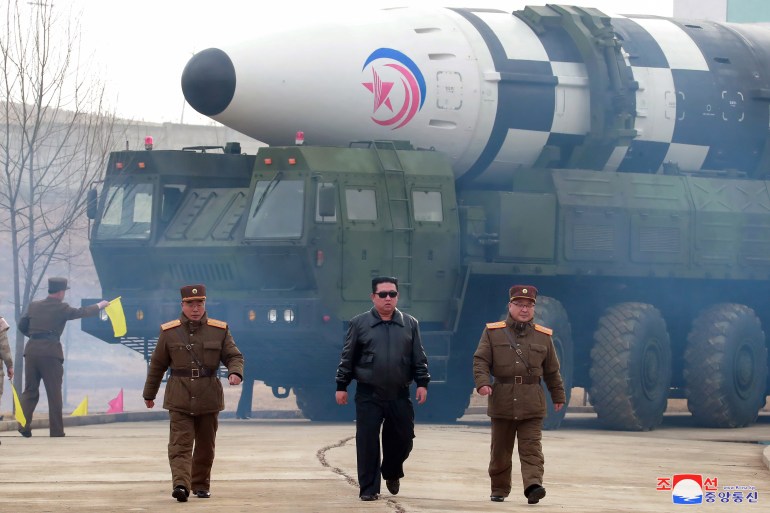The United States vowed Monday to maintain diplomatic pressure on North Korea until the regime in Pyongyang changes its behavior, as the White House issued a decision to extend a national emergency over North Korea to deal with national security threats.
This comes amid North Korea's launch of several ballistic missile tests and fears of a possible new nuclear test.
US Secretary of State Anthony Blinken said - during a joint press conference with his South Korean counterpart Park Jin - that pressure on Pyongyang will continue and will increase - if necessary - until it engages with us and with our partners and allies in dialogue and diplomacy.
"We are in very close contact with our close allies and partners starting with the Republic of Korea (South Korea), Japan and others so that we can respond quickly if the North Koreans go ahead with a test of this kind," Blinken told reporters.
Blinken said the United States remains open to dialogue with North Korea, but Pyongyang has ignored calls for negotiation and instead tested missiles and made preparations to resume nuclear tests for the first time since 2017.
firm response
For his part, the South Korean Foreign Minister said that any provocations North Korea might make, including a nuclear test, would be met with a unified and firm response, and urged China to use its influence.
Park added that North Korea stands at a crossroads, as it can go ahead with a nuclear test and isolate itself, or return to diplomacy and dialogue.
"I also believe that China should play a very positive role in persuading North Korea that maintaining peace and stability on the Korean Peninsula requires a new way of thinking," he said.
North Korea continues its (European) ballistic missile tests
plans and decisions
On June 8, the United States, South Korea and Japan announced plans to strengthen security ties, and agreed to jointly confront threats from North Korea if Pyongyang conducted another nuclear test.
On May 27, China and Russia vetoed new UN Security Council sanctions that could have been imposed on North Korea in response to its continued ballistic missile tests, which are in violation of previous council resolutions.
North Korea has been subject since 2006 to a series of economic, commercial and military sanctions, under resolutions issued by the Security Council on an annual basis since then.
In the latest related developments, the White House said that US President Joe Biden issued two separate decisions extending the national emergency for one year, to deal with US national security threats.
The first resolution concerns North Korea with the aim of dealing with the threat posed by the presence and spread of fissile material that could be used for weapons on the Korean Peninsula.
The second decision concerns Belarus to deal with what constitutes the actions and policies of some members of the Government of Belarus, to undermine democratic processes or institutions in Belarus.

